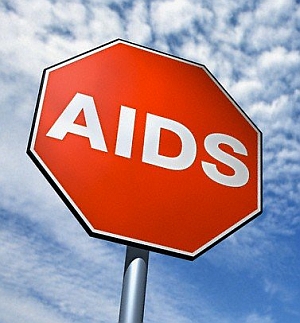HIV Aids: A Scourge on Africa's Development

 |
The 2009 UNAIDS statistics have also shown that "an estimated 22.4 million people are living with HIV in sub-Saharan Africa (SSA) - around two thirds of the global total. In 2008 around 1.4 million people died from AIDS in sub-Saharan Africa and 1.9 million people became infected with HIV. Since the beginning of the epidemic, more than 14 million children have lost one or both parents to AIDS."
The statistics further show that 1.4 million people in the region died in 2008 alone and there were 1.9 million new cases in SSA.
Behind every figure on these statistics, is a lost human life; and most of the people dying from AIDS are adults who have so far left an estimated 14 million children orphaned. These innocent children have to fend for themselves.
One such example is narrated by Oxfam's Kate Pattison who interviews a 15 years old Malawian girl (named Anne) who is "already responsible for her entire household: looking after her younger brother and sister, putting food on the table, making sure they all keep up with their school work"
Unfortunately, Anne's case is a typical story in sub-Saharan Africa and it does not need a genius to figure it out that there is a strong correlation between poverty in the region and the prevalence of the disease.
For instance, a recent Reuters report has pointed out that Southern Africa is the most hunger-prone, not only in the SSA, but the entire world. The report says: people are still hungry in Southern Africa between growing and harvesting season even when there have been good harvests.
Again, Malawi provides a good example of this point. The country has had average of 3.1 metric tones of surplus maize in the last 3 harvesting season yet WFP recently launched an appeal for money to help feed about 45 percent of Malawi’s 13 million population who will be without food between November and December 2010.
While admitting that there are other factors that contribute to hunger, Reuters has pointed out that "AIDS has had a dramatic effect on poverty in the region - families have lost their breadwinners and farming has been severely affected. AIDS orphans have had to take over the farming, affecting crop production and the food security of entire regions."
What shocks me however, is the fact that despite the well documented evidence and examples of the devastating effects of the pandemic, there is still wrangling between NGOs and church groups, as regards to best ways of combating or containing the disease.
As a result, the people who are already reluctant to discuss the topic are confused even further. Thereby putting a lot of lives in dander, as people do not have information of what is at hand and how to deal with it.
The 2009 UNAIDS report has attributed the improved statistics on HIV/AIDS infections on the improved preventive measures and awareness in the SSA. If this were anything to go by, it would appear that more cooperation and understanding on policy front between the stakeholders could actually play a key role in reducing the rate infections.
While I am aware that in the recent months church groups, which have for a long-time advocated for abstinence, rather than preventive measures such as condoms have softened up on their policies, I personally feel that church groups, especially the Catholic Church must take a long hard look at this abstinence policy and revise it forthwith.
The abstinence policy has simply failed; the statistics have demonstrated this. Unfortunately it is the innocent orphaned children who are paying the heavy price for these mundane policies. The stakeholders must realise that there can never be a way forward for the region with 14 million orphans fending for themselves in its midst; and there are 1.4 million adults losing their lives to the disease every year.
By Jimmy Kainja.
Jimmy Kainja is a Malawian who has just completed his Masters of Research (MRes) Degree in Media and Communications at the London Metropolitan University.
